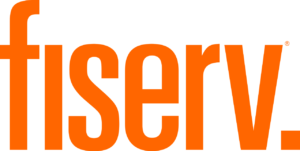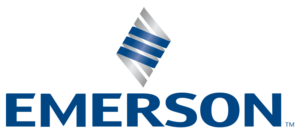This website uses cookies so that we can provide you with the best user experience possible. Cookie information is stored in your browser and performs functions such as recognising you when you return to our website and helping our team to understand which sections of the website you find most interesting and useful.
News & Events

August 5, 2024
SR Inc Quarterly Newsletter
Message from SR Inc’s Managing Director

As we reach the height of the year with warm weather and long days, Sustainability Roundtable Inc. is experiencing an exciting period of growth and development, welcoming new Member-Clients and engaging in activities with partners coast-to-coast. We recently hosted our SBER Q2 Executive Symposium in Boston and San Francisco, which focused on both the SEC’s Climate Disclosure Rule & Mandatory Reporting and ESG Software Solutions. In this Quarterly Newsletter, you’ll find takeaways from the Symposium, the latest from the Net Zero Consortium for Buyers, Member-Client spotlights, upcoming event announcements, and more. Please follow along on LinkedIn to stay up-to-date with our frequent announcements.
From the Service Leader
The Rising Tide of Sustainability Talent

As we enjoy the increasing sunshine and onset of spring from our vantage point in our office at One Beacon, overlooking Boston Common, Sustainability Roundtable Inc. is also experiencing
Amid pronounced and all too confused “anti-ESG” efforts from those opposed to proactive commitments to greater Diversity, Equity, and Inclusion (DEI), and funded by interests that reject the notion that divesting from global oil and gas can reduce risks, it becomes crucial to clearly define corporate sustainability.
For over a decade, from 2008 to 2018, I displayed the 1999 Dow Jones Sustainability Index (DJSI) definition of corporate sustainability under my email signature. This definition states: “A business approach that creates long-term shareholder value by embracing opportunities and managing risks deriving from economic, environmental, and social developments.” This definition served as a cornerstone, highlighting the importance of competence in managing nonfinancial “capital” critical to long-term enterprise success in diverse global markets.
How an enterprise defines Corporate Sustainability is not legally significant. Consequently, if your enterprise has not done so, it is past time to build a solid and sustainable definition of the term and your enterprise’s related efforts. This is a process that Sustainability Roundtable, Inc. would be glad to assist with and will properly involve both your General Counsel and at a minimum, an enlightening tour through the last 25+ year evolution of the term.
The United Nations’ Brundtland Commission’s 1987 report famously introduced the broad field of “sustainable development” as “meeting present needs without compromising future generations’ ability to meet their own.” This concept was a preliminary step toward broader acceptance and integration of sustainability in business practices. In 1997, John Elkington transposed this concept of sustainable development to the far more narrow subject of enterprise or corporate sustainability when he proposed “The Triple Bottom Line,” (for individual enterprises) encapsulating the idea that true corporate profitability should account for people and the planet in addition to monetary profit. This approach was transformative, urging businesses to measure their environmental and social impacts alongside financial performance. As these concepts gained traction, frameworks, and indices such as the DJSI began to quantify and benchmark these efforts, paving the way for standards like the European headquartered, impact conscious, Global Reporting Initiative (GRI) and the later, U.S. headquartered, Sustainability Accounting Standards Board (SASB) focused on industry specific financial materiality. These frameworks helped standardize the reporting of economic, environmental, and social performance, enhancing transparency and accountability. But legal mandates were needed to create comparable metrics and they have arrived.
Supporting the development of mandated reporting requirements around the world was a change in the articulated understanding of world leading business collaboration. In 2019, JP Morgan CEO Jamie Dimon led The Business Roundtable in redefining “The Purpose of the Corporation” reversing a Business Roundtable declaration decades ago and committing to serving all stakeholders instead of shareholders alone. This was paralleled by the World Economic Forum’s 2020 Davos Manifesto, which largely restated its 1973 Manifesto that advocated for a stakeholder-centric approach to global businesses.
The most important, currently enforceable legal manifestation of this new commitment to multi-stakeholder value creation is the European Union’s Corporate Sustainability Reporting Directive (CSRD) and the International Financial Reporting Standards (IFRS) Foundation’s establishment of the International Sustainability Standards Board (ISSB) mark critical steps towards integrating sustainability into core corporate governance frameworks. These initiatives aim to streamline and enhance the quality of sustainability reporting globally, a move that supports informed decision-making by all corporate stakeholders. In the United States, although the SEC’s climate rule is currently stayed, it also reflects an unequivocally clear move to recognizing competence in multi-stakeholder value creation as material to corporate governance and financial reporting.
Given these developments, it is worth taking a moment to offer an informed if still provisional definition of corporate sustainability:
“Corporate sustainability is an approach to business that commits to building value with the corporation’s stakeholders including employees, customers, suppliers, host communities and investors over the near, mid and long term, in a world confronted by unprecedented existential challenges.”
This draft definition is intended to be legally appropriate, commercially effective, and compellingly challenging. It’s only one possible draft but it captures enterprise sustainability as an evolving discipline that enables corporations to adapt to diverse, multi-level, far-reaching change while acknowledging the unprecedented nature of our global existential challenge of human-caused climate breakdown. It pushes an enterprise’s sensitivity and its ability to react out into its relationships with diverse global stakeholders.
As discourse and laws around the world change corporate sustainability, through both advocacy and opposition, the need for a current, accurate, and adaptable definition has never been more critical. SR Inc’s growing team looks forward to collaborating with Member-Clients to refine and adapt their own definition, ensuring it aligns with their unique contexts. Done right, this effort aligns with – but also steps beyond – compliance and public relations. To step into ethical integrity and a sustainable social license to operate, even as the transformative depth and breadth of our global challenge is, every quarter and every year, only more clear.
Executive Symposium Takeaways

Navigating the SEC Climate Disclosure Rule
SR Inc held our Sustainable Business & Enterprise Roundtable (SBER) Q2 Executive Symposium on June 13th, 2024. We enjoyed meeting with everyone at the UMass Club in Boston and in the Salesforce Tower in San Francisco. We examined SR Inc’s latest guidance on the SEC Climate Disclosure Rule, focusing on evaluating materiality, understanding options to meet assurance requirements, and providing guidance on working cross-functionally to prepare for reporting compliance. Participants heard from SR Inc Member-Client executive Chris Demers, Director of ESG at Juniper Networks, as he shared the company’s process of preparing for the SEC rule, including work-plan development, cross-functional and senior management engagement, and lessons learned from working with external partners.

The Symposium highlighted reporting through the frame of ESG software. With Member-Clients seeking solutions for calculating and reporting their GHG inventories, as well as strategic support and streamlining of their decarbonization program, the SR Inc team shared the analysis of our Spring 2024 RFI for software solution providers. Participants heard from Matthew Yamatin, Sustainability Program Director at Thermo Fisher Scientific, about the company’s environmental data collection launch plan, focused on their use of ESG software. Participants also learned from Scott Diehl, Vice President of Central Data Operations at PTC, about the company’s experience selecting and using a software solution.
New Member-Client Announcement
Fiserv is a global fintech and payments company with solutions for banking, global commerce, merchant acquiring, billing and payments, and point-of-sale.SR Inc is excited to support Fiserv with its commitment to acting as a responsible steward of our environment and operating businesses in a sustainable manner.
Emerson is the global technology, software and engineering powerhouse driving innovation that makes the world healthier, safer, smarter and more sustainable.SR Inc looks forward to helping Emerson with its environmental sustainability framework: Greening Of Emerson, Greening By Emerson and Greening With Emerson.
Waters is a software and instruments company that ensures the safety of the medicines we take, the purity of the food we eat and the water we drink, and the quality and durability of products we use every day. SR Inc is excited to support Waters with strengthening its sustainability policies and commitments while helping the company reduce its environmental impacts.
New SR Inc Team Members
SR Inc welcomes Charlie Forcey as Chief Technology Officer
As the first CTO at SR Inc, Charlie is poised to drive technological innovation as the company continues to deliver cutting-edge decarbonization solutions to its Member-Clients.
He brings a technologist’s perspective to aligning product and market strategy with sustainable business imperatives. Charlie will lead in digitalizing SR Inc’s membership-based strategic consulting services and aggregated procurement processes to enhance SR Inc’s leadership in decarbonization-as-a-service.
Charlie’s expertise in enterprise software for sustainability was first honed at Advanced Energy Economy (now Advanced Energy United), where he led the engineering team to create the PowerSuite product line, providing consistent, timely access to renewable energy dockets from fifty states. This role underscored his commitment to environmental sustainability and his ability to handle large-scale data challenges for the renewable energy market.
SR Inc welcomes Shannon Paulson as NZCB Analyst
As an analyst for the Net Zero Consortium for Buyers (NZCB), Shannon evaluates markets for aggregated procurements in the U.S. and Europe and develops original research on transaction structures, electricity markets, and top developers. In addition, she supports Member-Clients with proprietary financial modeling, evaluations of potential transaction opportunities, and strategic guidance.
Sustainable Leadership Blog
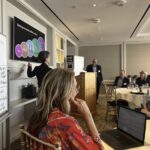 SR Inc Sponsors ABL Commonwealth Climate Coalition Roundtable: MA Higher Ed & State Climate Leaders Leaders from higher education institutions across Massachusetts, as well as state representatives — Climate Chief Melissa Hoffer, Undersecretary of Decarbonization & Resilience Katherine Antos, and Executive Director, Office of Energy Transformation Melissa Lavinson, came together to discuss how MA higher ed institutions can help the state achieve its ambitious climate goals.
SR Inc Sponsors ABL Commonwealth Climate Coalition Roundtable: MA Higher Ed & State Climate Leaders Leaders from higher education institutions across Massachusetts, as well as state representatives — Climate Chief Melissa Hoffer, Undersecretary of Decarbonization & Resilience Katherine Antos, and Executive Director, Office of Energy Transformation Melissa Lavinson, came together to discuss how MA higher ed institutions can help the state achieve its ambitious climate goals. 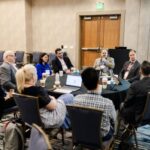 SR Inc Executives Attend Clean Energy Buyers Association (CEBA) Summit
SR Inc Executives Attend Clean Energy Buyers Association (CEBA) Summit
SR Inc’s CEO Jim Boyle and CFO David Osborn were pleased to share information and insights on the Virtual Power Purchase Agreement (VPPA) 2.0 while attending the Clean Energy Buyers Association (CEBA)’s Spring Summit Denver. The Summit was three days full of dynamic discussions, presentations, and networking opportunities, all centered around the shared goal of accelerating the transition to clean energy.
Net Zero Consortium for Buyers Updates
 Seven Corporate Buyers Enter Into Aggregation Deal To Purchase 180 MW of Solar Energy Through the Net Zero Consortium for Buyers
Seven Corporate Buyers Enter Into Aggregation Deal To Purchase 180 MW of Solar Energy Through the Net Zero Consortium for Buyers
Through Sustainability Roundtable, Inc.’s Net Zero Consortium for Buyers (NZCB), Cisco, Juniper Networks, Bio-Rad Laboratories, Cadence Design Systems, IDEXX Laboratories, Inc., PTC, and a large healthcare company signed an aggregated virtual power purchase agreement (VPPA) with Southern Power Company for the renewable energy credits produced by the 180 MW Phase II portion of the Millers Branch Solar Facility in Haskell County, Texas, expected to achieve commercial operation in the second quarter of 2026.
Member-Client Executive Highlight
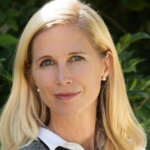
Nell Triplett has been at Juniper Networks since March 2022. She recently worked with SR Inc in signing an aggregated virtual power purchase agreement (VPPA) with Southern Power, through our Net Zero Consortium for Buyers, for renewable energy credits produced by the 180 MW Phase II portion of the Millers Branch Solar Facility in Haskell County, Texas — expected to achieve commercial operation in the second quarter of 2026. Nell celebrated the achievement, stating: “The Millers Branch aggregation is a double win for Juniper Networks and the environment. We advance our corporate emissions reduction targets with expected mitigation of 70% of the company’s electricity demand in North America.”.
Member-Client Spotlights
 Bloomberg published its 2023 Impact Report
Bloomberg published its 2023 Impact Report
Bloomberg outlines how it addresses climate change through its operations, philanthropy, and collaborations, and helps to drive progress in the communities where employees and clients live and work.
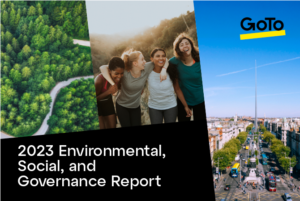 GoTo published its 2023 ESG Report
GoTo published its 2023 ESG Report
GoTo outlines how it has advanced its climate action goals, integrated AI further into its products with responsible use, invested in GoGetters’ professional growth, and underscored its commitment to sustainable innovation to make a positive impact on the world.
 Wayfair published its 2023 Corporate Responsibility Report
Wayfair published its 2023 Corporate Responsibility Report
Wayfair has published its third-annual Corporate Responsibility Report — highlighting its commitment to achieving zero waste across global operations by 2030. “Bringing Impact Home” dives into the company’s corporate responsibility performance in 2023 across three pillars: communities, people and our planet.
Upcoming Events
Q3 Executive Symposium Thursday, December 7th, 2023 12:00 pm – 2:30 pm ET Member-Clients meet in New York and Virtually
SBER 2024 Awards Dinner Thursday, December 5th, 2024 6:30 pm – 8:30 pm ET Member-Clients meet in Washington D.C.
The Summit For Sustainable Business VIII: Decarbonizing Corporate Global Operations Friday, December 6th, 2024 8:00 am – 3:45 pm ET Member-Clients meet in Washington D.C. See All Upcoming Events

